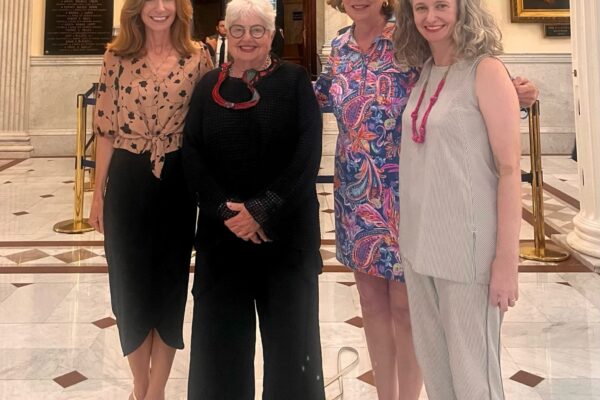As the 193rd legislative session comes to an end, The Arc is encouraged by the final FY25 budget; however, we had hoped to see some additional bills advance to passage. A few bills were in a position to move, but negotiations on housing, health care, pharmacy, veterans, and other bills kept conferees working past the July 31 deadline. Our Legislative bill sponsors are working on positioning these bills to be heard and passed in the informal session.
An agreement was reached, H4977, authorizing $5.16 billion to advance affordable housing. Accessory dwelling units (ADUs), one of The Arc’s priorities over four sessions, was included. It is expected to advance housing affordability statewide. But the conferees also included a specific grant and loan program for developing ADUs for people with disabilities as noted below. We expect that Governor Maura Healey will sign the bill as all her major priorities are included.
More disability specific items include:
- A $60 million ADU loan/grant program (7004-0069) specifically to assist homeowners or tenants with a household member with blindness or severe disabilities in making modifications to their primary residence for the purpose of improving accessibility or to allow such individuals to live independently in the community or for construction costs to allow for the building of an accessory unit (references activities of daily living).
- $125 million through separate funds for persons with disabilities:
- $70 million for community-based housing or supportive housing for individuals with mental illness and individuals with intellectual disabilities.
- $55 million for those with disabilities who don’t qualify for the previous fund, with $10 million reserved for a DMH pilot for homeless persons.
- Both loan or grant programs require Green Communities standards.
- A third fund cited in 4000-8200 of $50 million is intended to implement the recommendations of the special commission in the form of loans for the development of community-based housing for individuals with mental health or intellectual or developmental disabilities (through CEDAC, MHFA, Govt Land Bank), of which $10 million is for DMH current or former client who are homeless.
- Within $2 billion state grants programs for public housing, there is a $15 million allocation which “shall be used to increase accessibility of state-aided public housing for persons with disabilities.”
- Section 127 establishes a special commission to study and make recommendations on accessibility in housing for persons with disabilities and seniors to increase the ability of individuals to live in a safe, dignified, and healthy environment in their residences. The Arc is a member of the commission along with several other groups.
- Section 120 assigns the architectural access board (AAB) to determine the value of any multiple dwelling as defined in 521 CMR 5.00 that is owned, constructed, or renovated by a housing authority by setting a replacement cost. We need more information on this section but we hope it will advance accessibility by providing a further role for AAB.
Vetoes and State Budget
State House News reported that Governor Healey’s $317 million in budget veto overrides will stand. Senator Michael Rodrigues said early Thursday morning that senators do not want to complete overrides because of concerns about anticipated July tax revenues.
Within the Department of Developmental Services (DDS) budget, the cuts included $1 million in the Autism Division and $401,385 in state operated residential services. Both accounts are still budgeted higher than FY24 fiscal year. We will advocate for additional funds for the children’s autism division if needed during the fiscal year. Staffing continues to be the major barrier for people to receive adequate services at all or in a timely manner. The Arc focused on advancing the historic $485 million increase recommended by Governor Healey and embraced by House and Senate members.
It is important to note that although key line items grew, the size of those increases were affected by 9C cuts in FY24. A good example is community residential, where we estimate that spending was $35 million below its approved authorization. We are pleased that community accounts grew, most notably Family Support, Day/Employment, and Autism Omnibus (adults). However, access to services will be limited if we do not continue to see the benchmark for salaries rise with each rate setting cycle including MassHealth.
As reported, we are indebted to the House and Senate members and Ways and Means for stopping the Personal Care Attendant (PCA) eligibility cut and reduction of meal hours. We appreciate Governor Healey’s decision to let the language stand in the final budget. We look forward to working with others in the PCA workgroup which was established.
Also as reported, earmark funding for health equity and provider training was included. Although the Operation House Call bill passed as part of the FY24 budget, we did not receive annualized funding. We hope to have funding approved through the administration to avoid the necessity of an earmark. Also passed is AFAM’s ABA Training pilot, which will provide ABA training for staff working in day programs with participants who have complex, challenging behaviors.
In a second wrap-up later in August, we will cover inside language in the budget, update the housing bond bill, and hope to have a snapshot of proceedings during the informal session of the legislature.
In the meantime, make sure you are registered to vote before the August 26 deadline!






